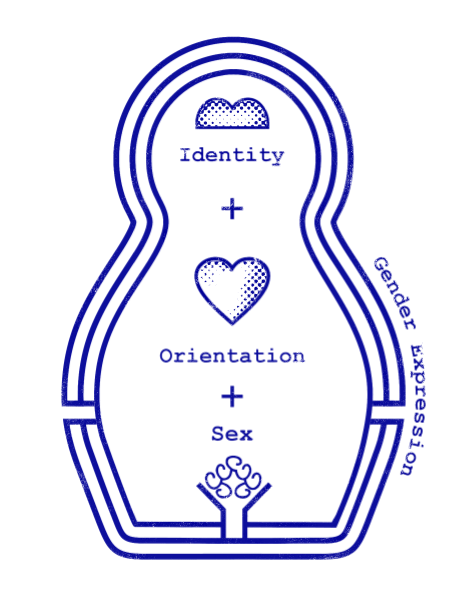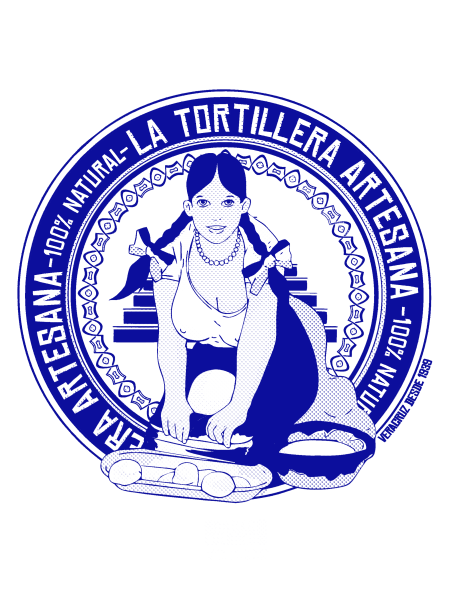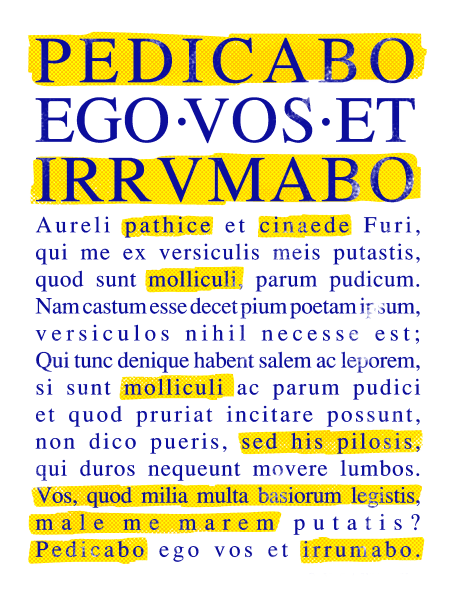Lesbian Dictionary Japanese
How to say lesbian in Japanese
Below are the words of our Japanese Lesbian Dictionary that we will expand in new editions. If you know any more, please, contact us. But first some information about the language and its country.
The Japanese language is a Japonic language family spoken by more than one hundred and thirty million people, mostly in Japan, where it is the official language. It is also an official language in Palau and the Marshall Islands.

Japanese lesbians in Tokyo LGBT pride, 2012.
Tokyo Rainbow Pride 2012, photo by Lauren Anderson used under CC BY 2.0 /resized y optimized.
Homosexual behavior has never been illegal in Japan except for seven years, between 1873-1880, in an attempt to approach the Christian morality of the West. However, neither society nor religion never have considered it a sin. nevertheless, this has not led to greater visibility for lesbians and, unlike male homosexuality, it has not been subject to cultural production, but belatedly and for the enjoyment of heterosexual men.
According to some historians (and according to elementary logic), you can document and talk about homosexual behavior in women for a long time, but unlike men who could direct their sexual energy towards both sexes, women did not have that option, and lesbianism was in a discreet and hidden background. It is not until the 1980s when they raise the speech, celebrating in 1985 the first Japanese lesbian convention and lesbian bars and clubs begin to open throughout the country.
In Japan, they understand sex differently than in the West since it is not a moral issue, but it has to do with pleasure, social position, and responsibility. In general terms, it can be said that in Japan they have no problem with homosexual behavior, but with homosexuality, that is why the LGBT community does not enjoy the same rights or the same protections that we have in the West, and that is why many homosexual people hide it and even get married forming a heterosexual couple.
From the Japanese Lesbian Dictionary, we highlight both the number of expressions that originate in the English language, as well as the creative adaptation and incorporation of words aimed at gays.
- +
Bian
The Japanese expression Bian is a shortening of the word Rezubian whose translation into the English language is lesbian.
+Chidori
Chidori is a mocking Japanese expression to refer to lesbians, which we could translate as a plover or wading bird. This slang arises in the gang scene of cities, in which lesbians were frequent targets, being verbally attacked and even physically. It seems that the mockery comes from the way the bird walks.
+Dõseiai no onna
The Japanese expression Dõseiai no onna, which we could literally translate into the English language as a same-sex lover woman, would become the Japanese expression for what we understand here as a lesbian. However, the fact that it is more complicated makes it less preferred by Japanese lesbians, in favor of the words Rezu or Rezubian.
+Gomora
Gomora is a very offensive expression to refer to lesbians, with the hue of a whore, slut, etc., which has its origin in the famous biblical city of Gomorrah. It seems that we are facing a new case of adaptation of an insult against gays, which is transformed to use it against lesbians. From sodomite comes “gomorrist”, this time for Japanese lesbians.
+Itachi
The literal translation of the Japanese word Itachi is a weasel and is used to attack lesbians in the city gang scene, as is the case of the word Chidori. Itachi implies a double attack because when it refers to two or more Itachi, as it is a word that has no plural, instead of using a person’s grammar counter, they use an animal one.
+Kaiawase
The expression Kaiawase is not used against lesbians but is used in street jargon to refer to lesbian intercourse derogatorily. We can translate it into the English language as bumping pussies because the word Kai, meaning the shell, is also vulgar slang for vagina. Besides, there is a traditional Japanese game with the same name, in which you must combine the shells one against each other. So, the word Kaiawase could also have the meaning of meeting pussies. Another related expression, even more potent, is the word Ainame, which could make the meaning of mutual licking.
+Neko
The literal translation of the Japanese word Neko is a cat and is used to refer to feminine lesbians. It is an expression used in Japan to refer to passive gays, and this idea of passivity and femininity has taken the semantic leap to also refer to this type of lesbian.
Synonymous: Nenne.
+Nenne
The literal translation of the Japanese word Nenne is girly and is used to refer to this type of lesbian. It is an expression used in Japan to refer to the bottom and effeminate gay people, and this idea of femininity has done the semantic leap to also name to femmes.
Synonymous: Neko.
+Onabe
The literal translation of the Japanese expression Onabe is pot and is slang for a masculine lesbian. As in other offending or words used to refer to lesbians in Japan, its origin is in translating one gay slang word, in this case, Okama, the most famous insult or Japanese expression for gay people, since “kama” means cauldron, what is near a pot. At first, it had the sense of lesbian with an “active” role in sex, so that it served as a modifier of the word Rezubian, therefore there were “Onabe Rezubians” and Rezubian who were not. In the early 1990s is when Onabe differentiation begins as another type of lesbian, different from Rezubian.
See Okama. Gay Dictionary (Japan)
+Otachi
Otachi is an expression that arises in the lesbian circles to name to a hard and masculine lesbian, what in the English language would be a Bull Dyke or Diesel Dyke. Although the resemblance to the word Itachi is undeniable, it seems that the expression has its origin in the Kabuki, a type of Japanese theater. If the slang Tachiyaku is used to name the very hard, active and, masculine gay, in Otachi, we get the equivalent for Japanese lesbians.
+Otoko-onna
The Japanese Otoko-onna translates into the English language as man-woman and would have its analog expression in “He-she.” It is a hard expression usually used to insult lesbians or big male-looking women.
+Rezu
The Japanese expression Rezu is a shortening of the word Rezubian whose translation into the Spanish language is lesbian. It would be the equivalent word to the English Dyke and Lez, and although it is one of the most used expressions, depending on the context, it can be slightly derogatory.
+Rezubian
Rezubian (レズビアン) is a Japanese phonetic adaptation of the English word lesbian that first appeared in the main thematic magazines in the 1960s, and referred to both women with a masculine gender expression and women who have sex with women.
Variations: Rezu, Bian.
Related: Onabe.
+Saffizumu
The expression Saffizumu (サ ッ フ ィ ズ ム) is the Japanese phonetic adaptation of the English word Saphist. Saphist is a lesbian slang concerning the poet Sappho of Mytilene, also known as Sappho of Lesbos.
+Yuri
The meaning of Yuri
The English translation of the Japanese word Yuri (百合) is Lily, a relatively common female name in Japan, and it is a slang to refer to love between girls. Yuri is a creative genre in a variety of publications, ranging from the homo-erotic novel, manga, and anime, to video games. Although initially focused on romantic relationships aimed at a female audience, progressively appearing publications aimed at men and also with sexual content.

Yuri Manga ilustration
Croesus and Incarna by ykkb used under CC BY 3.0. Resized and optimized.The origin of Yuri
The origin of Yuri is not certainly known, but there is some unanimity in saying that it dates from 1976 in the magazine Barazoku (Pink Tribe), targeted to the gay public. Its editor created a section with letters from female readers titled “Yurizoku no heya” (Lily Tribe’s room). Although in this group of readers, there were lesbians and heterosexual women, some established the relationship, and the slang Yuri began to be used in different publications until it ended up naming this lesbian genre. Previously and in the same way, had been coined the slang Bara (pink) for editions aimed at gay people. Although it is not the objective of this entry, it is necessary to remark the large number of sub-genders, with their respective denominations, depending on the targeted audience and their sexual orientation, the media type, the soft or explicit sex, and the characters gender expression.
If you have read the entirety of our Japanese Lesbian Dictionary, you could see that Yuri is another of the terms used to refer to lesbians or lesbianism, which has its origin in expressions used for gay people. And this is done through a more creative adaptation than what we see in other languages, such as Russian, in which from the term Goluboj (light blue) for gays is created the expression Rozovyj (pink) for lesbians.
+Yurizoku
Yurizoku is a Japanese expression translated into the English language as Lily Tribe. This expression is the origin of Yuri (百合), one of the most well-known terms in Japan related to lesbians, which translates into English as Lily, a woman’s name relatively common in the country of the rising sun. It is not known with certainty if the following was the origin, but it seems that the issue began in a monthly magazine for gay people called Barazoku (1971-2004), which means Pink Tribe. In 1976, the editor decided to title “Yurizoku no heya” (Lily Tribe’s room), a section made with the letters that women readers send. And it is not that all these women were lesbians, but gradually the relationship was established, and Yuri began to be used in different publications becoming more and more known over time. We would have again an adaptation of a word related to male homosexuality, Barazoku, to create a slang for lesbianism, Yurizoku. These two expressions will give rise to other slangs Yuri and Bara.







Can you help us with this dictionary?
You can do it in two ways, sending an email with some words you know, and also, spreading our work on your social networks.
Share it!